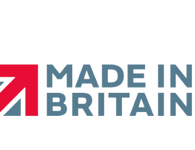





Need help choosing? Scroll down for guidance on organic and clean supplements.


A clean supplement contains only active ingredients with no artificial additives, bulking agents, synthetic fillers, or unnecessary preservatives. To check if a supplement is clean, read the ingredient list—avoid artificial colourings, magnesium stearate, titanium dioxide, and unnecessary fillers. Look for third-party lab testing and transparent brands that give full ingredient details.
Organic supplements, when possible, are better because they are free from synthetic pesticides, herbicides, and chemical fertilisers. Organic plant-based supplements often retain higher nutrient density and purity. However, not all supplements can be organic—minerals, vitamins and synthetically derived nutrients do not qualify for organic certification.
Not always. In the UK and EU, "organic" means at least 95% of the ingredients are certified organic. The remaining 5% may include non-organic but approved substances essential for the formula. Always check for certification from reputable organisations like the Soil Association or EU Organic logo.
No, minerals such as magnesium, zinc, and iron cannot be certified organic because they are not grown like plant-based ingredients. However, our mineral supplements are high-purity, free from contaminants, and sourced responsibly, ensuring maximum safety and absorption.
Vitamins cannot be organic as they are not crops that are grown. However, our clean vitamins are carefully sourced, free from artificial additives, and independently lab-tested for purity and potency.
Look for third-party testing, GMP (Good Manufacturing Practice) certification, and a clean ingredient list. High-quality brands, like VitaBright, provide full transparency, avoid unnecessary additives, and manufacture in UK-certified facilities. Independent lab testing ensures purity, potency, and absence of contaminants.